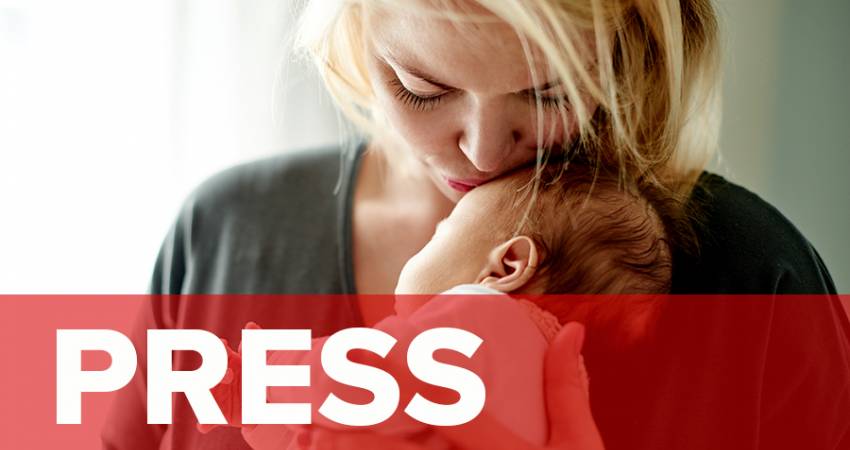
PRESS: Irish government should heed English decision to reverse "at-home abortions"
The Life Institute has called on the Irish government to heed the decision of the English Department of Health to reverse "at-home abortions" which were introduced during Covid restrictions in 2020 - which also happened in Ireland.
Megan Ní Scealláin of the Life Institute said that the change in practice brought about in the lockdown, where women were being sent abortion pills without a face-to-face consultation, was not centered on the well-being or safety of either mother or baby, and continued to endanger women.
"It is interesting that the Department of Health and Social Care in England decided that the provision of pills to induce abortion should return to pre-COVID arrangements because, they said, the wellbeing and safety of women was their first and foremost priority," she said. "It is essential that our own Department of Health has a long hard look at the evidence and reverses the decision made by Simon Harris in 2020."
"Prior to Covid, the HSE had said that pregnant women needed to attend a pre-abortion consultation in a surgery or clinic. When this radical change was made in March 2020, pro-life doctors and nurses warned that dropping the requirement for a physical consultation could be dangerous. They pointed out that an ultrasound may be required to determine gestation – and can be crucial to determine if the pregnancy is ectopic, since an undiagnosed ectopic pregnancy can be life-threatening," she said.
"In fact, during the referendum, voters were told that because women were putting their lives in danger by importing abortion pills and taking them without medical supervision. Then Taoiseach, Leo Varadkar, said that if people voted ‘No’ it was “only a matter of time before someone haemorrhages or bleeds to death after taking one of these pills unregulated”.
"It seems strange, then, that no such fears were raised about women’s safety when taking the abortion pill at home after a phone or Skype consultation. In fact, the contrary has happened," the Life Institute spokeswoman said. "The HSE has admitted it is not collecting any data on complications that arise from “at-home abortions” – even though it is considering whether to continue the remote consultations in place after the pandemic.
"The HSE, in response to questions from Éamon Ó Cuív TD, the HSE confirmed “no analysis as such on remote consultation has been conducted in Ireland”. However, it did add that “the department has requested the HSE to revisit the Model of Care to review its operation and consider whether it should be retained going forward”.
"Mary-Jo Biggs, General Manager of the National Women and Infants Health Programme for the HSE told Ó'Cuiv at the time that Ireland is only using evidence from the UK," said Ms Ní Scealláin. "But now the Department of Health in England has reversed its policy of allowing at-home abortions. It's time for our government to do the same."
In May 2020, just two months after at-home abortions were legalised, a leaked email from a Regional Chief Midwife at NHS England and NHS Improvement revealed that there had been “two maternal deaths linked to this issue”. The email also revealed that women were presenting at hospitals after talking abortion pills for a range of incidents including “significant pain and bleeding related to the process through to ruptured ectopics”, “major resuscitation for major haemorrhage”, and incidents involving the “delivery of infants who are up to 30 weeks gestation”.
Twelve months later, more than 600 medics in Britain demanded that the controversial ‘pills in the post’ scheme be scrapped, citing fears that abortion pills mailed after phone or online consultations were being used when the baby was beyond the ten-week limit stipulated – and might even be beyond the 24-week limit for surgical abortions. They also said that taking abortion pills at home made it easier for men to coerce women into abortions against their will – and failed to protect women who were being trafficked or abused.
That call was echoed in August 2021 by two former presidents of the Royal College of Physicians and Surgeons of Glasgow who said the Scottish government “should reinstate in-person appointments at the earliest possible opportunity”.
"These outcomes and findings may have been a factor in the decision by the English government to stop 'at-home' abortions. Since the HSE has already said it is using evidence from the UK on this issue, then at least follow its lead in putting women's safety first and banning 'at-home' abortions," said Ms Ní Scealláin.
"This should not be about making abortion "easier" or "more accessible", but about examining medical outcomes, looking at the well being of women which includes ensuring they are not being bullied or coerced into abortion, and also considering the child whose life might be saved if an alternative to abortion was offered," she said.
Featured
- Yes, that hideous celebration of 300 abortions is real
- White Crosses Memorial: Dungarvan once again pays its respects to our aborted babies
- Precious Life welcomes strong stand by Scottish Bishops against 'draconian' Buffer Zones law
- The fury over sex-selective abortion in Britain
- IFPA’s claim ignores HSE statistics on benefit of 3-day wait
- 12 Wonders of Christmas a huge Success
- Campaign to stop EU funding out of state abortions - tell your EU commissioner to vote NO
- Judge recuses himself from case of woman praying in censorship zones for “apparent bias”
- I’m a Celebrity star criticises “sad” UK law that aborts babies with Down Syndrome up to birth
- British actress speaks out on “serious risk” assisted suicide bill has for those with eating disorders
- Caplan’s “Tragic Hysteria of Abortion” discusses the flaws with mainstream Turnaway Study interpretations
- Mother and baby doing well after surgery for mother’s cancer during pregnancy
- Josiah: Abortion Survivor
- Loving the Unborn
- Rally for Life 2025
- Don't assist Suicide 2024
You can make a difference.
DONATE TODAY